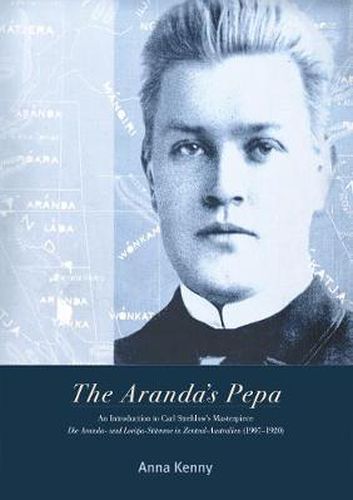Readings Newsletter
Become a Readings Member to make your shopping experience even easier.
Sign in or sign up for free!
You’re not far away from qualifying for FREE standard shipping within Australia
You’ve qualified for FREE standard shipping within Australia
The cart is loading…






The German missionary Carl Strehlow (1871-1922) had a deep ethnographic interest in Aboriginal Australian cosmology and social life which he documented in his 7 volume work Die Aranda- und Loritja-Stamme in Zentral-Australien that remains unpublished in English. In 1913, Marcel Mauss called his collection of sacred songs and myths, an Australian Rig Veda. This immensely rich corpus, based on a lifetime on the central Australian frontier, is barely known in the English-speaking world and is the last great body of early Australian ethnography that has not yet been built into the world of Australian anthropology and its intellectual history.
The German psychological and hermeneutic traditions of anthropology that developed outside of a British-Australian intellectual world were alternatives to 19th century British scientism. The intellectual roots of early German anthropology reached back to Johann Gottfried Herder (1744-1803), the founder of German historical particularism, who rejected the concept of race as well as the French dogma of the uniform development of civilisation. Instead he recognised unique sets of values transmitted through history and maintained that cultures had to be viewed in terms of their own development and purpose. Thus, humanity was made up of a great diversity of ways of life, language being one of its main manifestations. It is this tradition that led to a concept of cultures in the plural.
$9.00 standard shipping within Australia
FREE standard shipping within Australia for orders over $100.00
Express & International shipping calculated at checkout
The German missionary Carl Strehlow (1871-1922) had a deep ethnographic interest in Aboriginal Australian cosmology and social life which he documented in his 7 volume work Die Aranda- und Loritja-Stamme in Zentral-Australien that remains unpublished in English. In 1913, Marcel Mauss called his collection of sacred songs and myths, an Australian Rig Veda. This immensely rich corpus, based on a lifetime on the central Australian frontier, is barely known in the English-speaking world and is the last great body of early Australian ethnography that has not yet been built into the world of Australian anthropology and its intellectual history.
The German psychological and hermeneutic traditions of anthropology that developed outside of a British-Australian intellectual world were alternatives to 19th century British scientism. The intellectual roots of early German anthropology reached back to Johann Gottfried Herder (1744-1803), the founder of German historical particularism, who rejected the concept of race as well as the French dogma of the uniform development of civilisation. Instead he recognised unique sets of values transmitted through history and maintained that cultures had to be viewed in terms of their own development and purpose. Thus, humanity was made up of a great diversity of ways of life, language being one of its main manifestations. It is this tradition that led to a concept of cultures in the plural.